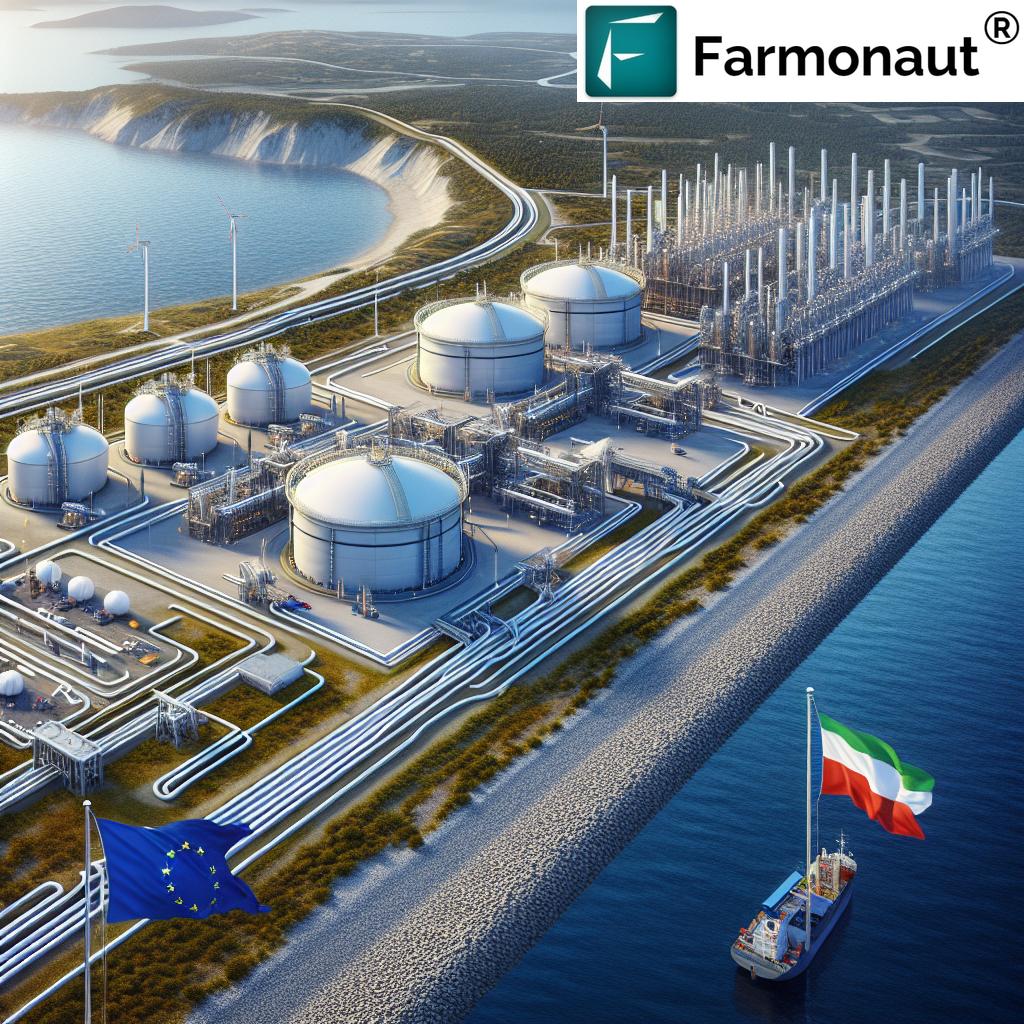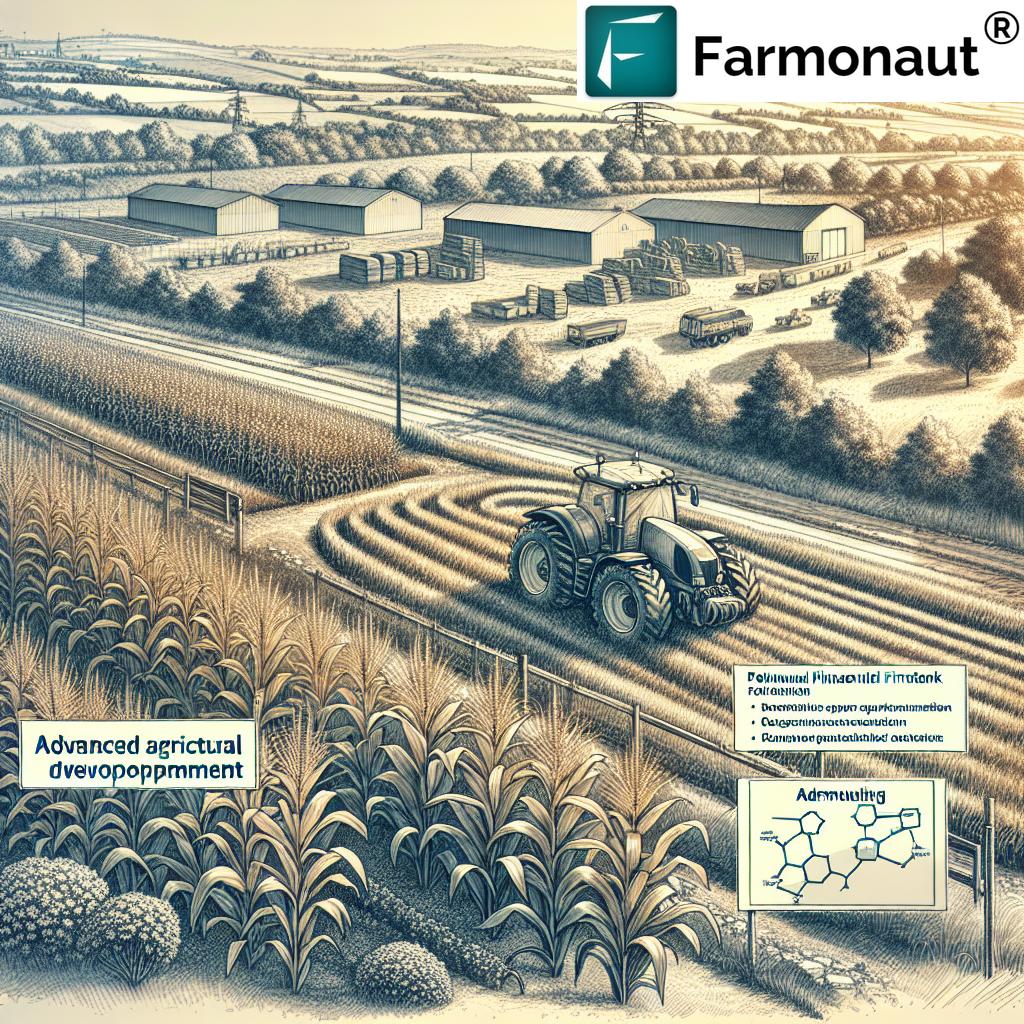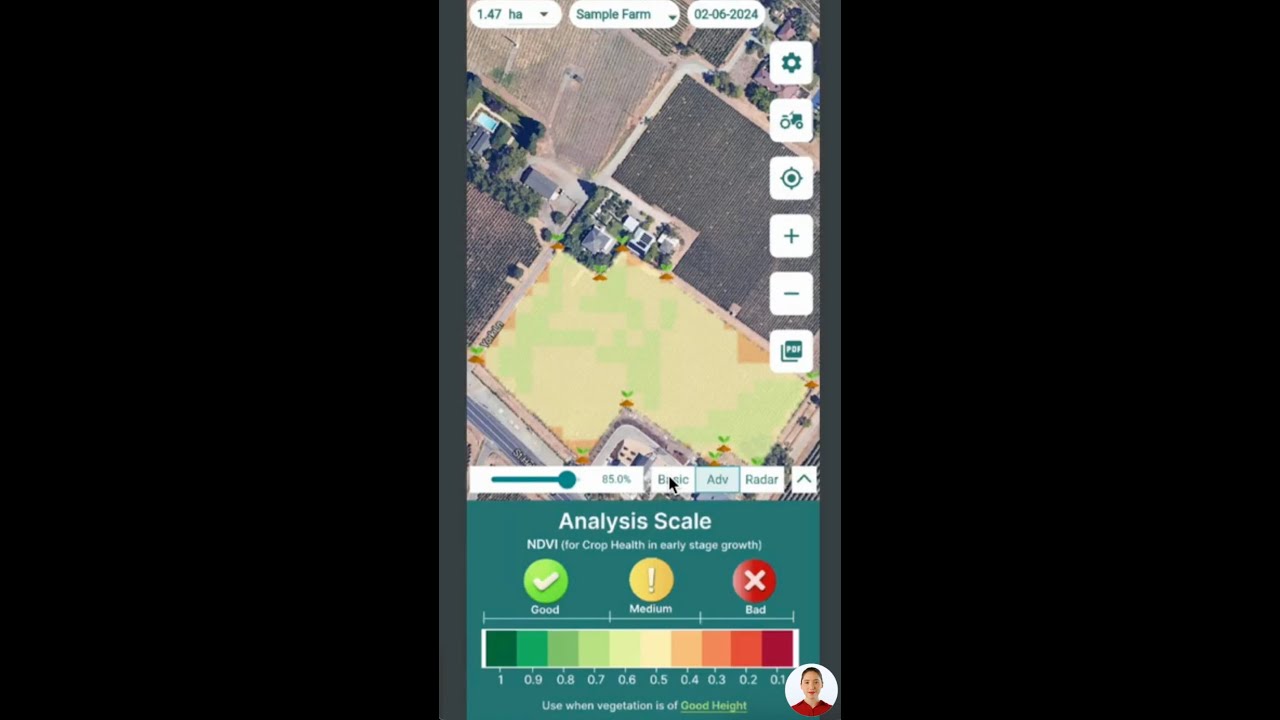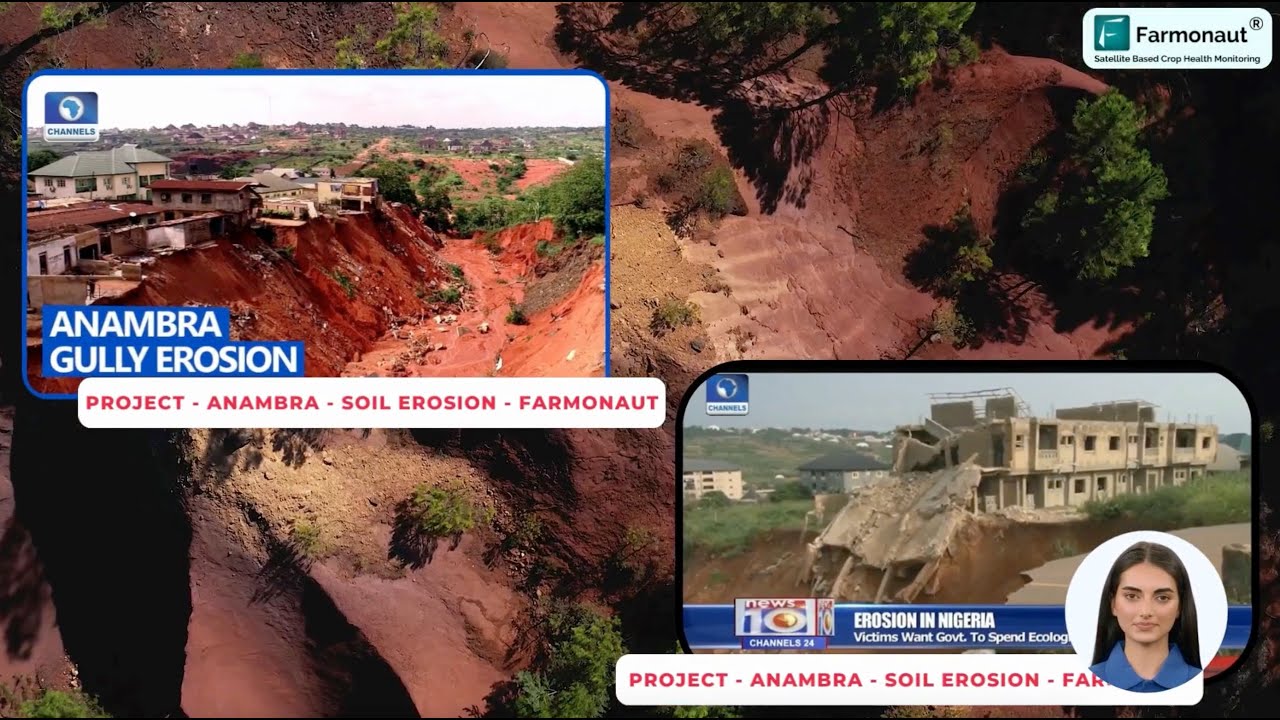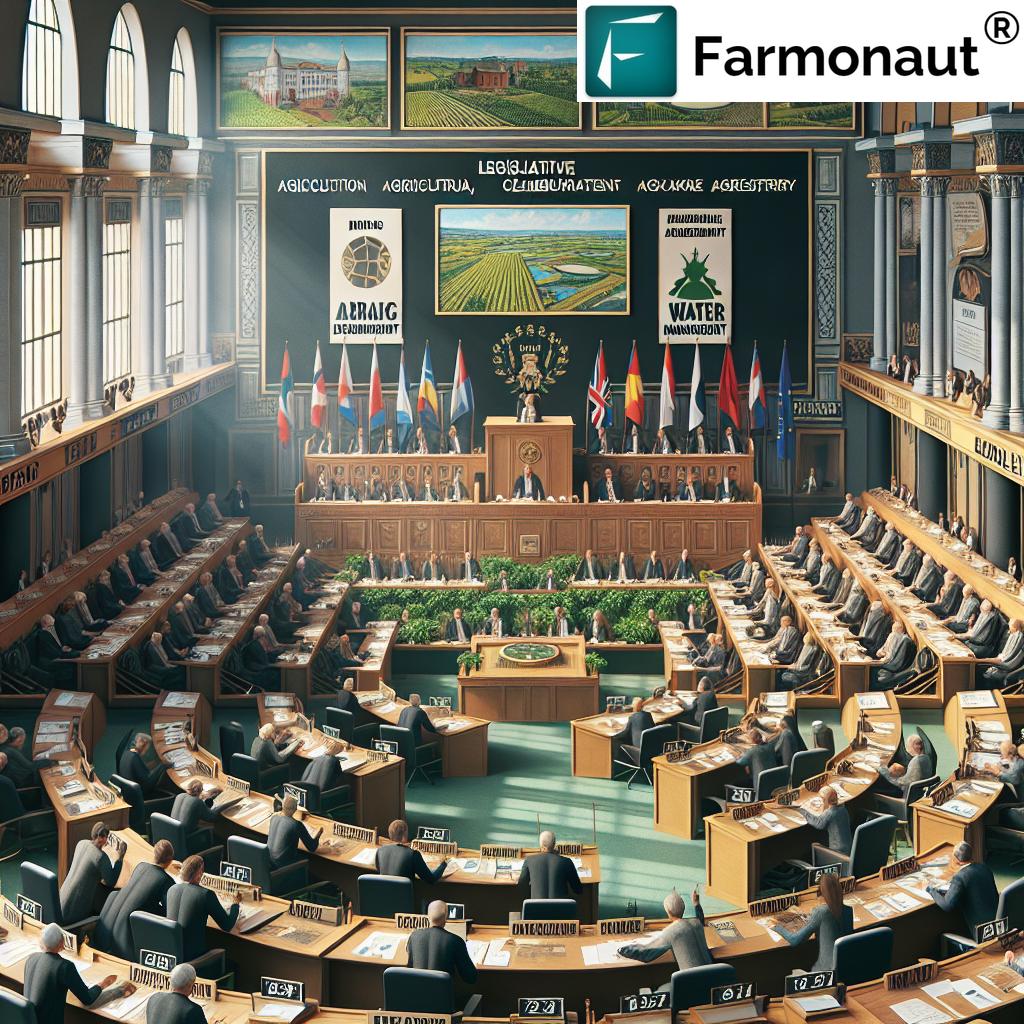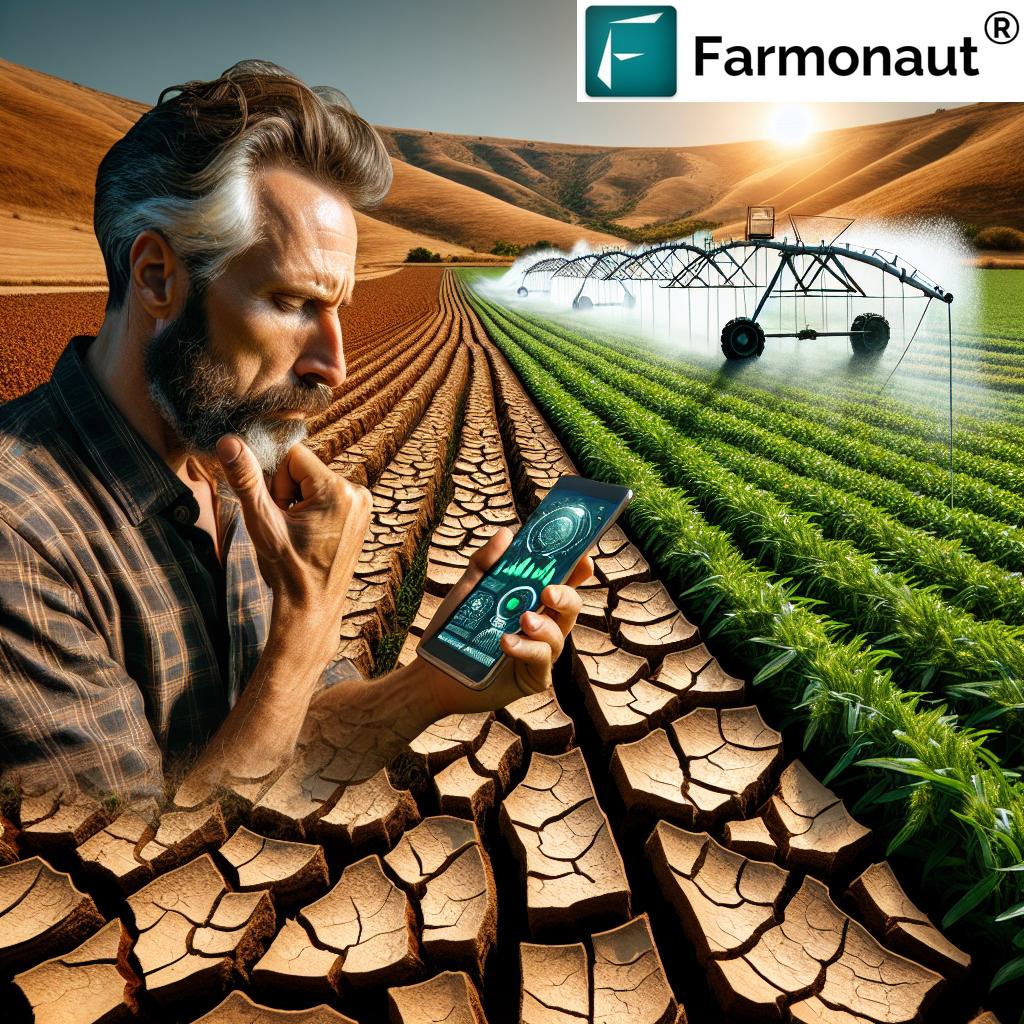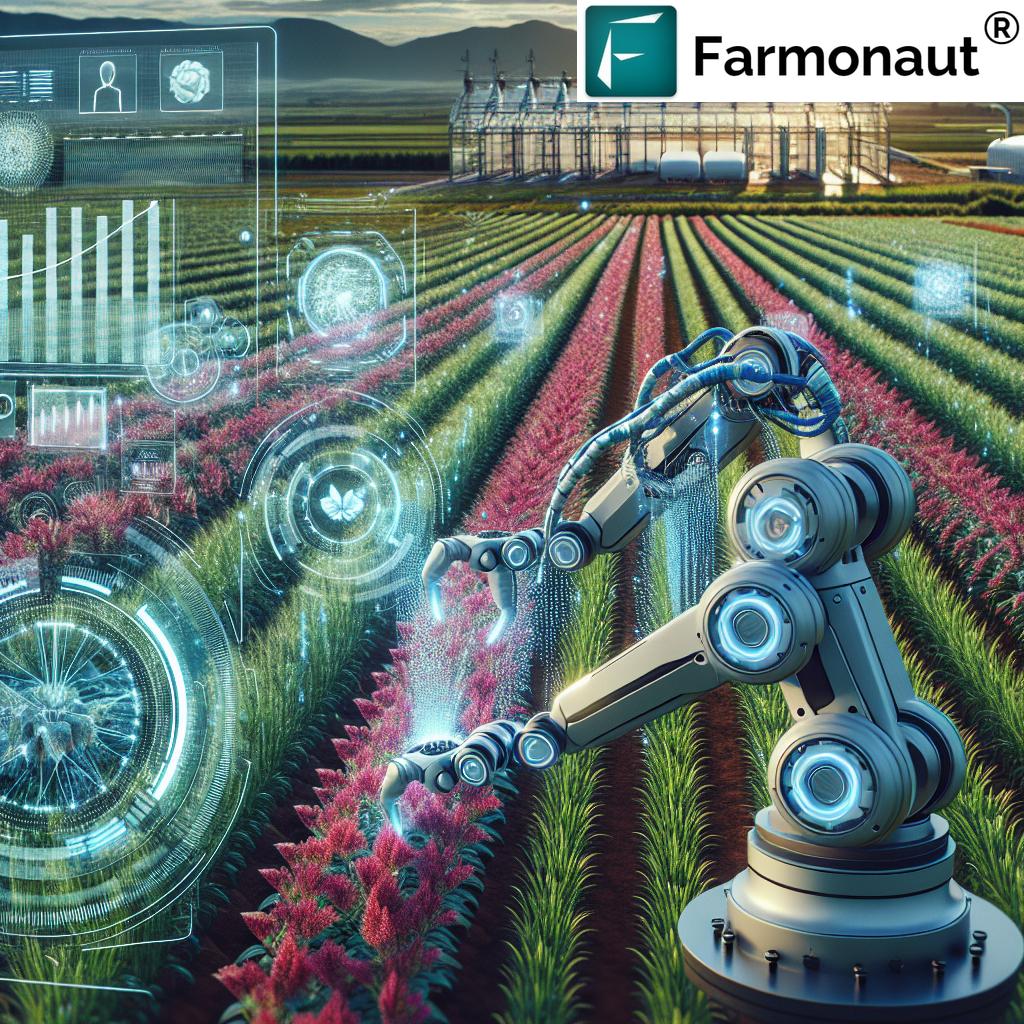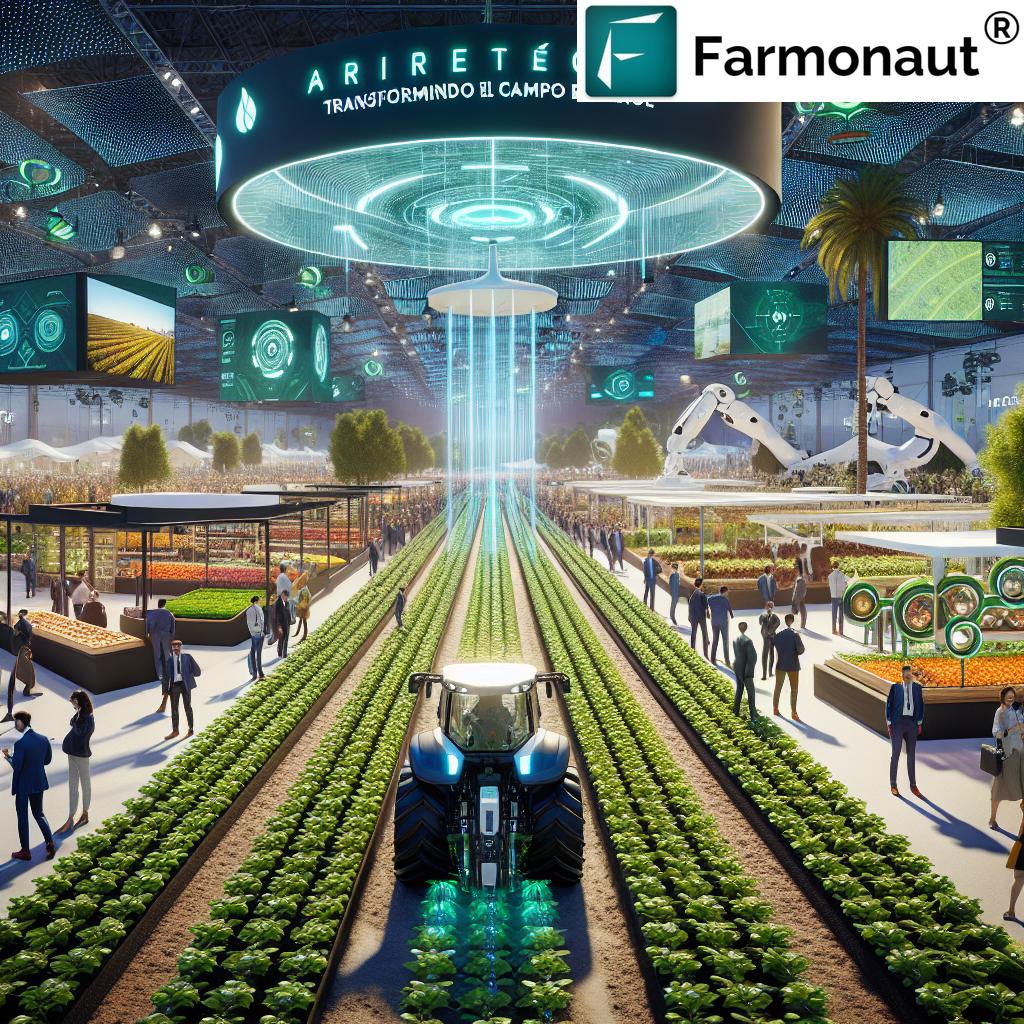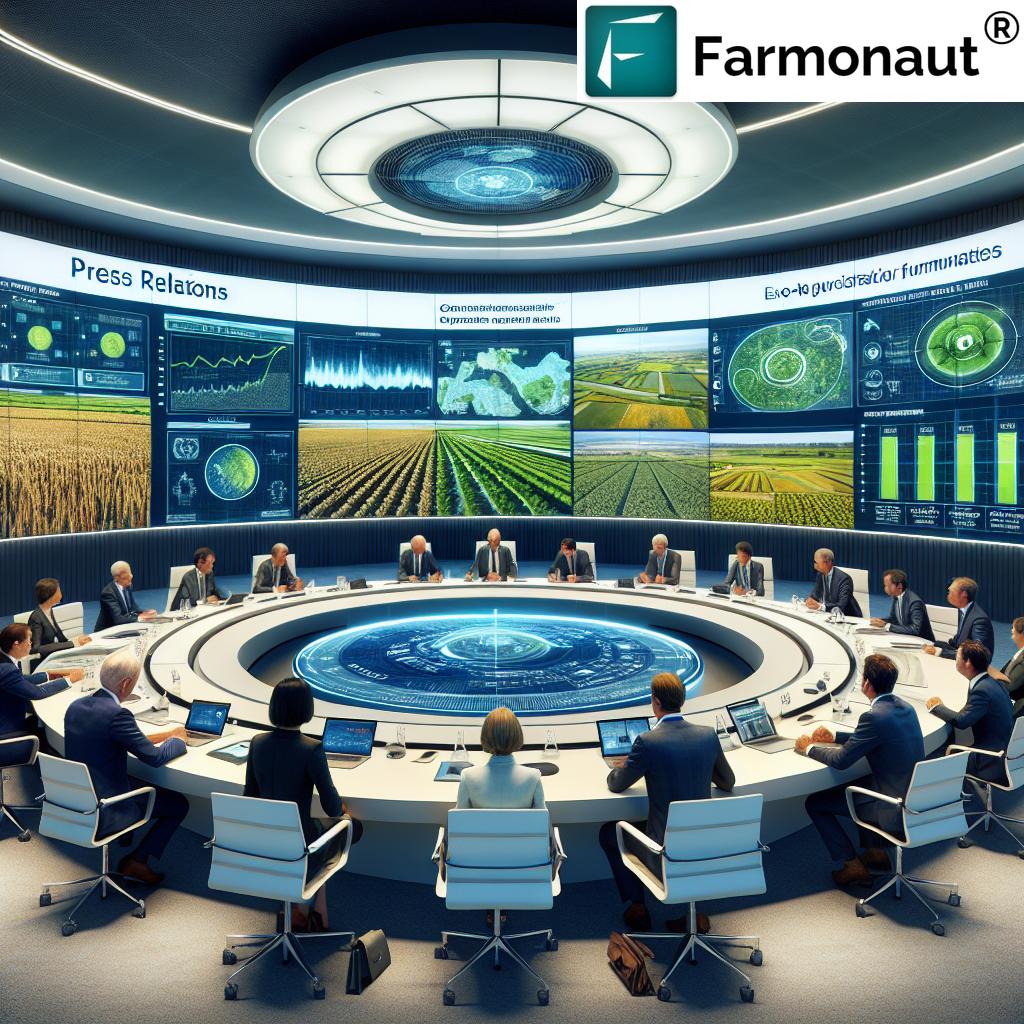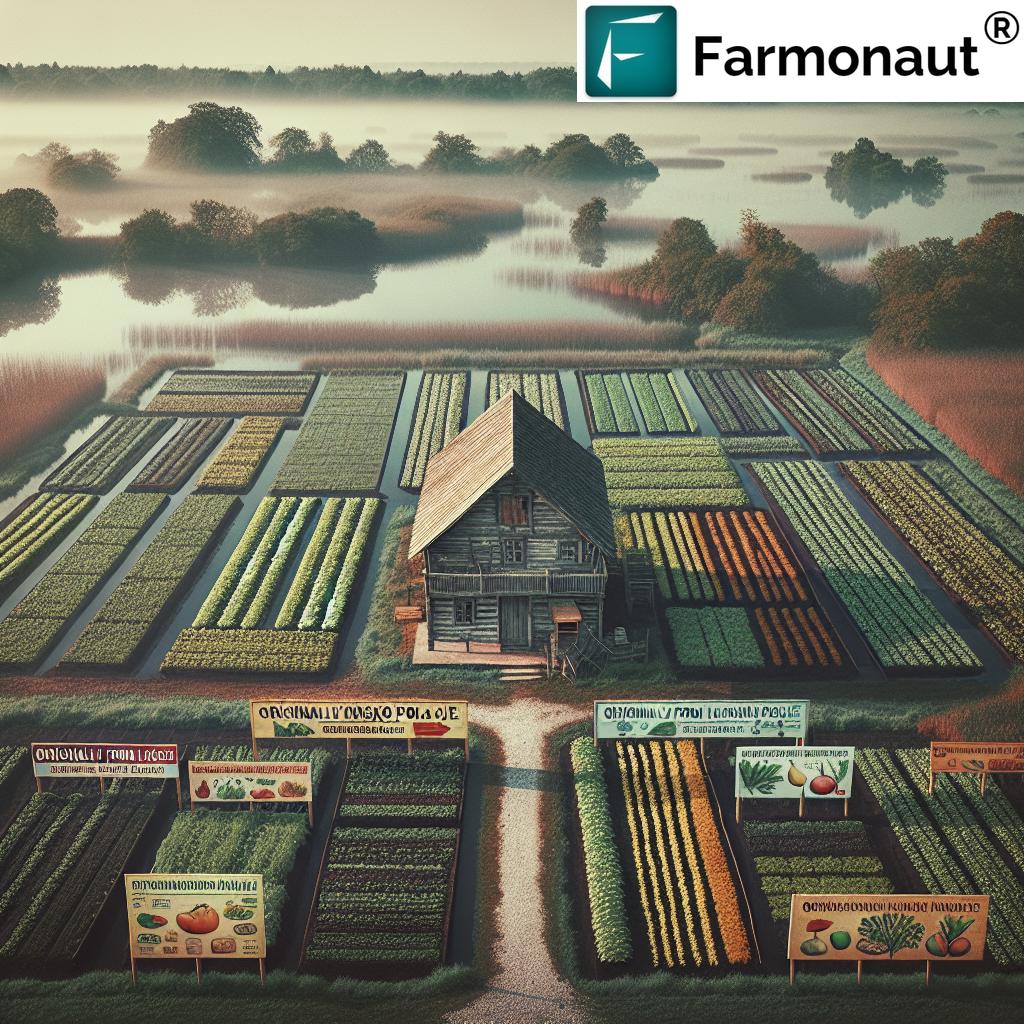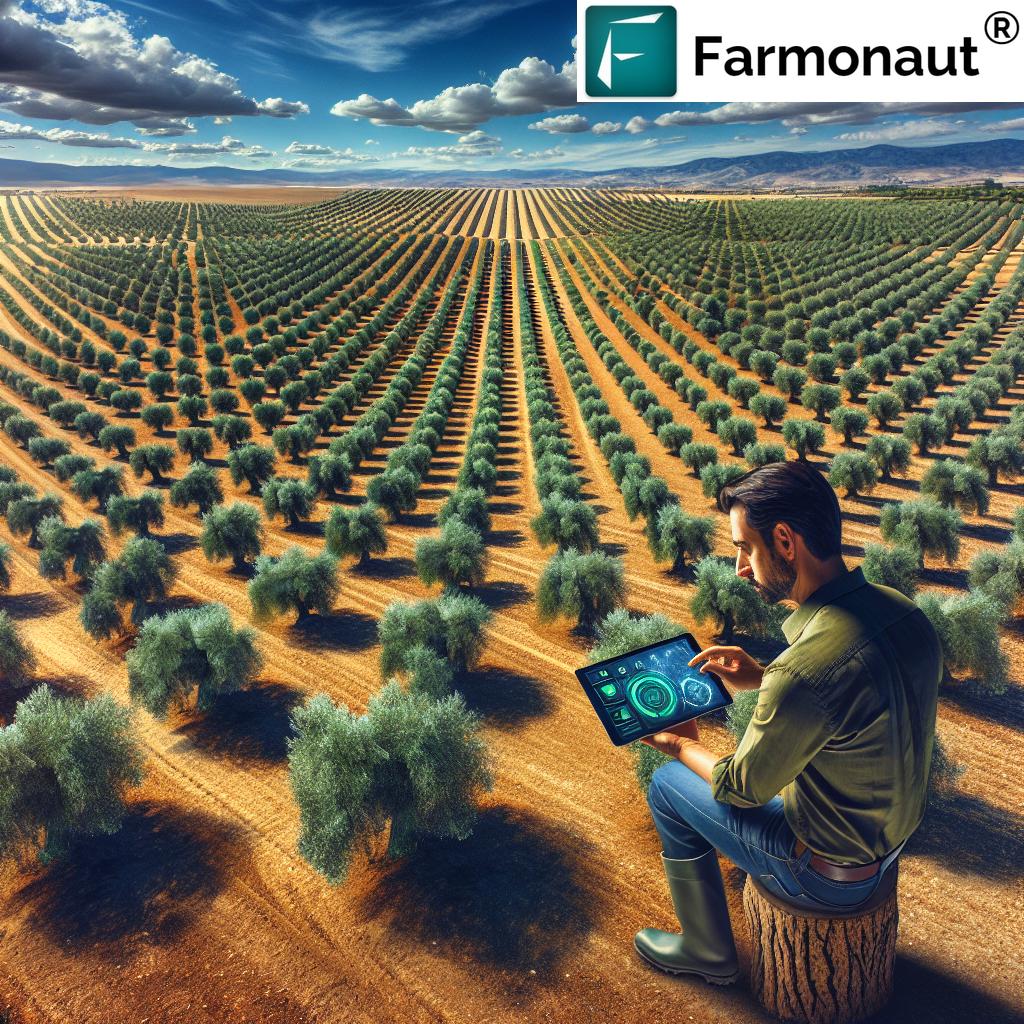Slovakia Croatia Energy Cooperation: 5 Key EU Policy Trends 2024
“Slovakia and Croatia increased joint EU energy projects by 30% in 2024, strengthening regional energy security.”
Table of Contents
- Introduction
- European Union Cohesion Policy: Context of Slovakia-Croatia Cooperation
- 5 Key EU Policy Trends in Slovakia Croatia Energy Cooperation 2024
- Comparative Trend Table: Slovakia-Croatia Energy Policy 2024
- Common Agricultural Policy Support and Innovations
- Ensuring Energy Security Through Gas and LNG
- Migration and European Defence: Striving for Cohesion
- Farmonaut Solutions: Enabling European Agricultural Development
- Policy Implications for EU Member States Grouped in Regional Development
- FAQ: Slovakia Croatia EU Policy Trends
Introduction
As Europe pivots to a new era of sustainability and energy resilience, Slovakia and Croatia emerge as prominent players in reinforcing European Union cohesion policy and energy cooperation. With dynamic developments in the gas sector, agricultural support mechanisms, and infrastructure innovation, both countries have positioned themselves at the heart of regional transformation. Our analysis explores the pivotal discussions held in Zagreb on April 16th, which set the groundwork for deeper collaboration within the forthcoming Multiannual Financial Framework (MFF) 2028-2034. Throughout this comprehensive review, we will focus on five key EU policy trends shaping Slovakia Croatia energy cooperation and their influence on the continent’s agricultural and energy futures.
European Union Cohesion Policy: Context of Slovakia-Croatia Cooperation
The cohesive force of the European Union rests on its ability to bridge economic and social gaps among member states. For Slovakia and Croatia, aligning national priorities under the umbrella of the European Union cohesion policy and the shared vision for energy and agricultural development is critical. Energized by high-level diplomatic exchanges, both countries emphasize that strategic cooperation delivers more than just sectoral benefits—it fortifies European solidarity as the continent faces shifting geopolitical realities.
The case of Slovakia, which currently receives only 80% of the EU average for direct agricultural payments, highlights the urgent need to level the playing field within the common agricultural policy support structures. This is not simply a matter of finance but of fairness and long-term sustainability for EU member states grouped within diverse regions.
“In 2024, EU Common Agricultural Policy support for Slovakia and Croatia rose by €120 million, boosting cross-border cooperation.”
5 Key EU Policy Trends in Slovakia Croatia Energy Cooperation 2024
Here, we explore the central trends that define Slovakia Croatia energy cooperation and drive regional transformation in 2024 and beyond. Each trend intersects with broader European Union policies and the evolving needs of EU member states, especially those grouped in the regions striving for parity and security.
- Renewable Energy Integration and Green Transformation
- Energy Infrastructure Expansion—Gas Transit and LNG Solutions
- Aligned Funding Allocations Under the Multiannual Financial Framework 2028-2034
- Regulatory Alignment and Policy Harmonization
- Common Agricultural Policy Support and Regional Innovation
1. Renewable Energy Integration and Green Transformation
Both Slovakia and Croatia are accelerating renewable energy deployment to meet EU Green Deal goals. Croatia’s rich solar and wind potential, combined with Slovakia’s expertise in hydro and nuclear, underscore the value of joint projects. These initiatives, strongly supported by the European Union cohesion policy, are geared towards achieving a higher rate of renewable energy penetration—expected to rise by as much as 35% across the region by 2025.
2. Energy Infrastructure Expansion—Gas Transit and LNG Solutions
In the wake of disruptions to traditional gas transit through Ukraine, Slovakia’s energy security depends heavily on alternative import routes. The liquefied natural gas terminals on the island of Krk in Croatia have become instrumental, offering an adaptable entry point for new LNG supplies. Although this LNG is currently more expensive compared to Russian imports via the TurkStream pipeline, it is vital for safeguarding domestic energy consumption in Slovakia and offers resilience against regional disruptions.
3. Aligned Funding Allocations Under the Multiannual Financial Framework 2028-2034
Intensive policy discussions are underway as both countries advocate for fair and effective allocations in the Multiannual Financial Framework 2028-2034 (MFF). The aim is to secure better terms for cohesion policy and agricultural funding, reducing disparities compared to Western states and enabling a level playing field for farm income, infrastructure, and sectoral innovation.
4. Regulatory Alignment and Policy Harmonization
Regulations across EU member states must be harmonized to ensure frictionless cross-border energy and agricultural exchange. Both Slovakia and Croatia focus on standardizing market access rules, environmental protocols, and trade policies. These efforts are integral to deeper integration and the realization of shared goals in European agricultural development and energy transition.
5. Common Agricultural Policy Support and Regional Innovation
The recently increased Common Agricultural Policy support (an additional €120 million in 2024 for Slovakia and Croatia) reinforces the region’s role as an agricultural hub. It enables investments in precision agriculture, sustainability projects, and digital farm management solutions—areas where affordable, satellite-based services such as those provided by Farmonaut are transforming rural livelihoods. The commitment to collaboration will further increase agricultural resilience, sustainability, and traceability throughout the supply chain.
Comparative Trend Table: Slovakia-Croatia Energy Policy 2024
| Policy Trend | Slovakia Initiatives (Estimated Impact) | Croatia Initiatives (Estimated Impact) | EU Cohesion Policy Support (Approx. Value) | Estimated Agricultural Sector Benefit |
|---|---|---|---|---|
| Renewable Energy Integration | Investment in hydro/nuclear, 30% renewables target by 2025 | Major solar & wind expansions, 5 new projects | €220 million in green stimulus |
Reduced energy costs, increased irrigation reliability |
| Energy Infrastructure (Gas & LNG) | LNG import capacity via Krk terminal; 20% pipeline increase | Expansion of Krk LNG capacity (+1 bcm/year in 2024) | €185 million allocated to infrastructure | Stable energy supply for food processing |
| Funding Allocations (MFF 2028-2034) | Active advocacy for increased cohesion funds | Joint negotiations for larger agri-budgets | +8% funding vs. previous period | More modern farm subsidies, precision agri-tech adoption |
| Regulatory Alignment | Updated energy/agrifood laws, digital management protocols | Easier cross-border project approvals | €60 million in technical support | Faster innovation roll-out, secure value chains |
| Agricultural Policy Cooperation | €60m extra for direct payment equalization | Precision ag, digital advisory uptake | €120m CAP increase in 2024 | Improved yields, smaller urban-rural divide |
Common Agricultural Policy Support and Innovations
At the center of the Slovak-Croatian policy dialogue is a desire to equip agriculture with the means to thrive in a competitive, sustainable, and technology-driven ecosystem. The increased Common Agricultural Policy support provides direct impetus for:
- Modernizing farms with technology and digital solutions
- Boosting research into climate adaptation and soil health
- Ensuring equal subsidization for farmers in newer and older member states
- Promoting efficient resource management and reducing environmental footprint
Through such support, both states take measurable steps towards reducing the urban-rural divide, and platforms like Farmonaut are making agricultural satellite monitoring, carbon footprinting, and AI advisories more accessible than ever. Explore our Large-Scale Farm Management platform or learn more about carbon footprinting for sustainable agriculture.
Ensuring Energy Security: Gas Transit and LNG Infrastructure
Energy security remains a pressing priority, particularly for Slovakia amid geopolitical uncertainties. With the curtailment of gas transit through Ukrainian territory, our government prioritized supply diversification measures. The liquefied natural gas terminals on the Croatian island of Krk have become strategic entry points for alternative LNG imports.
However, this adaptation is double-edged:
- LNG via Krk: Offers a non-Russian alternative, but at higher spot-market prices
- TurkStream (Russian pipeline): Currently supplements domestic consumption needs
- Infrastructure investments: Expanding pipeline connectivity and increasing Krk terminal throughput by 1 bcm/year
As regional integration advances, the stability of domestic energy consumption in Slovakia hinges on both policy progress and technical upgrades. These measures collectively reinforce resilience against supply shocks, benefiting downstream industries, notably agri-food processing.
For agri-businesses seeking traceability and efficient logistics in a rapidly modernizing supply chain, see the benefits of Farmonaut Fleet Management solutions and our agricultural product traceability technologies.
Access our platform and experience hands-on innovation:
Migration and European Defence: Striving for Cohesion & Stability
Beyond economic and energy matters, migration and European defence form critical aspects of EU cohesion. The call for a balanced approach—where agricultural, energy, and security interests align—was echoed by both ministers in Zagreb.
- Migration: Policy coordination is essential to address challenges at EU’s external borders and maintain social stability. Both countries support a fair distribution mechanism.
- European Defence: Joint security efforts and regional defence strategies must adapt to shifting geopolitical realities, especially given ongoing instability in the wider neighborhood.
This holistic approach ensures that the momentum generated by Slovakia Croatia energy cooperation extends to all areas influencing the cohesion and prosperity of the continent.
Farmonaut Solutions: Enabling European Agricultural Development
In the quest for agricultural modernization and efficient policy implementation, advanced digital platforms have become indispensable. Farmonaut is uniquely positioned to enable European agricultural development by delivering real-time insights, resource management, and scalable enterprise tools.
Precision Agriculture Powered by Satellite and AI
- Satellite-Based Crop Health Monitoring: Farmers monitor their fields digitally for vegetation indices (e.g., NDVI), soil health, and irrigation needs—facilitating efficiency and yield optimization even across vast land parcels.
- Jeevn AI Advisory: Personalized, AI-powered recommendations guide on-the-fly crop management, leveraging big data and weather analytics for smarter farming decisions and greater resilience.
- Blockchain-Based Traceability: Supports supply chain transparency from field to consumer, essential for building trust in a networked, regulated EU market.
- Fleet and Resource Management: Optimize inputs, vehicle use, and harvest logistics to reduce costs and environmental impact.
- Carbon Footprinting: Instantly assess and manage farm-level emissions, supporting sustainability commitments and access to green credits via Farmonaut’s carbon footprinting solutions.
Accessible Platforms and Developer Integration
- Farmonaut Web & Mobile Apps—available on Android and iOS, delivering on-the-go, high-precision management for any farm size or type.
- Developers and enterprises can seamlessly link satellite, weather, and advisory data into their own platforms via the Farmonaut API. For in-depth integration, review our API Developer Docs.
Business Model and Value for All Stakeholders
- Flexible Subscriptions: Farmonaut caters to everyone—from smallholder farmers to government agencies—with scalable, cost-effective packages.
- Institutional and Commercial Support: Our services power insurance verification, agribusiness planning, supply chain transparency, and more.
- Farmonaut is a leading technology solutions company; we empower farming, not sell farm inputs or machinery.
For crop loan risk reduction and digital insurance verification, see our satellite-based crop loan and insurance solutions.
Policy Implications for EU Member States Grouped in Regional Development
The Slovakia-Croatia case illustrates how proactive cooperation accelerates national ambitions while reinforcing the broader EU vision. By aligning priorities on energy security, agricultural innovation, and infrastructure funding, both countries set a strong precedent for other EU member states grouped by similar developmental challenges.
- Accelerated Integration: Seamless policy alignment, whether on direct payments or regulatory approaches, sets standards for equitable growth across the EU.
- Collective Bargaining Power: United advocacy positions Central and Eastern states as effective negotiators within the MFF 2028-2034 framework.
- Resilient Food and Energy Systems: Diversified imports, advanced digitalization, and precise subsidies enhance system robustness and adaptability—with standardized digital tools such as those offered by Farmonaut acting as force multipliers.
Such regional initiatives, particularly when paired with modern digital management solutions, contribute to a cohesive, future-oriented Europe.
FAQ: Slovakia Croatia EU Policy Trends
What are the main priorities for Slovakia and Croatia within the European Union’s Multiannual Financial Framework 2028-2034?
The core priorities are enhanced cohesion policy allocations, improved common agricultural policy support, development of energy infrastructure (notably in gas transit and LNG), and regulatory harmonization to support growth and competitiveness.
How does gas transit through Ukrainian territory impact Slovakia?
Historically, Slovakia relied on gas transiting via Ukraine for most of its domestic energy needs. Disruptions in this route have pushed the government to diversify, leveraging LNG terminals like Krk in Croatia and alternative pipelines, despite cost differences.
Why is agricultural parity important for EU member states grouped in Central and Eastern Europe?
Many of these member states, including Slovakia, receive less in direct payments under the Common Agricultural Policy compared to western counterparts. Achieving parity fosters fairness, boosts rural incomes, and promotes sustainable EU agricultural development.
What innovative solutions does Farmonaut offer for Slovak and Croatian farmers?
Farmonaut empowers farmers with real-time satellite crop health monitoring, AI advisory, carbon footprinting, blockchain traceability, and fleet management tools—all accessible via Android, iOS, web app, or API for scalable, affordable precision agriculture.
How do funding increases and digitalization benefit the agricultural sector?
Increased funding through EU policy supports modernization, climate resilience, and enhanced productivity. Digital solutions streamline management, boost traceability, and lower the operational burden for large and small farms alike.
Conclusion
The Slovakia Croatia energy cooperation story in 2024 is ultimately one of proactive, future-facing integration—where policy innovation, digital transformation, and regional solidarity work hand-in-hand to secure a competitive and cohesive European Union. As negotiations on the Multiannual Financial Framework 2028-2034 gather pace, the focus on gas infrastructure, LNG supply, agricultural funding, and modern farm management will define the prosperity of not only Slovakia and Croatia but also all EU member states working to close longstanding gaps.
We, as industry observers and stakeholders, recognize that platforms like Farmonaut—offering cost-effective, practical, and scalable digital solutions—are essential for realizing the vision laid out by national leaders in Zagreb. Through smarter agricultural practices, increased traceability, and conscious resource management, every farmer and decision-maker can contribute to building an adaptive, sustainable Europe—today and tomorrow.


